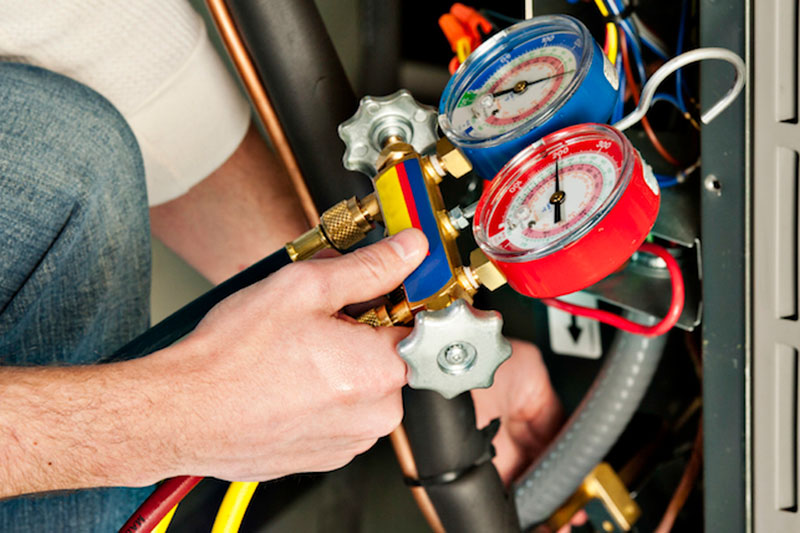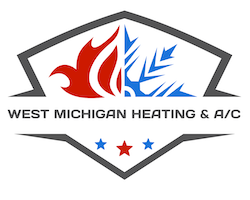
You might not think much about how your air conditioner functions, but it needs refrigerant to keep your house cold. This refrigerant is subject to environmental rules, as it contains chemicals.
Based on when your air conditioner was installed, it may require R-22, R-410A or R-32 refrigerant. We’ll review the differences and which air conditioner refrigerants are being phased out in Hudsonville, plus how these phaseouts affect you.
What’s R-22 and Why Is It Phased Out?
If your air conditioner was added before 2010, it possibly uses Freon®. You can learn if your air conditioner has it by calling us at (616) 319-1436. You can also look at the name plate on your air conditioner condenser, which is found outside your house. This sticker will include info on what model of refrigerant your AC uses.
Freon, which is also referred to as R-22, has chlorine. Scientists consider R-22 to be harmful to the earth’s ozone layer and one that prompts global warming. The Environmental Protection Agency, which manages refrigerants in the United States, outlawed its production and import in January 2020.
I Use an Air Conditioner with R-22. Do I Need to Get a New One?
It differs. If your air conditioning is cooling correctly, you can continue to use it. With regular air conditioner maintenance, you can expect your system to operate around 15–20 years. However, the Department of Energy notes that removing a 10-year-old air conditioner could save you 20–40% on annual cooling costs!
If you don’t install a new air conditioner, it might lead to an issue if you require air conditioning repair later on, specifically for refrigerant. Repairs can be higher-priced, because only small quantities of recycled and reclaimed R-22 is on hand.
With the phaseout of R-22, most new air conditioners now have Puron®. Also referred to as R-410A, this refrigerant was made to keep the ozone layer strong. As it requires an incompatible pressure level, it doesn’t match air conditioners that need R-22 for cooling.
However, Puron still has the likelihood to lead to global warming. As a consequence, it could also ultimately be ended. Although it hasn’t been mandated yet for residential air conditioners, it’s expected sometime this decade.
What Refrigerant Will Take Over R-410A?
In preparation of the phaseout, some manufacturers have started using R-32 in new air conditioners. This refrigerant ranks low for global warming potential—about one-third less than R-410A. And it also lowers energy consumption by about 10%, according to the Intergovernmental Panel on Climate Change’s Fourth Assessment Report. That’s savings that may be sent on to you through your utility costs.
West Michigan Heating & Air Conditioning Services Can Help with All Your Air Conditioning Needs
In brief, the alterations to air conditioner refrigerant probably won’t affect you a whole lot until you require repairs. But as we discussed beforehand, refrigerant-related repairs may be more expensive due to the reduced amounts that are accessible.
Aside from that, your air conditioner frequently breaks down at the worst time, typically on the muggiest day when we’re receiving a lot of other appointments for AC repair.
If your air conditioner uses an outdated refrigerant or is aging, we advise installing a new, energy-efficient air conditioner. This provides a trouble-free summer and might even reduce your utility costs, especially if you select an ENERGY STAR®-rated system. Plus, West Michigan Heating & Air Conditioning Services offers many financing solutions to make your new air conditioner work with your budget. Contact us at (616) 319-1436 to get started now with a free estimate.


